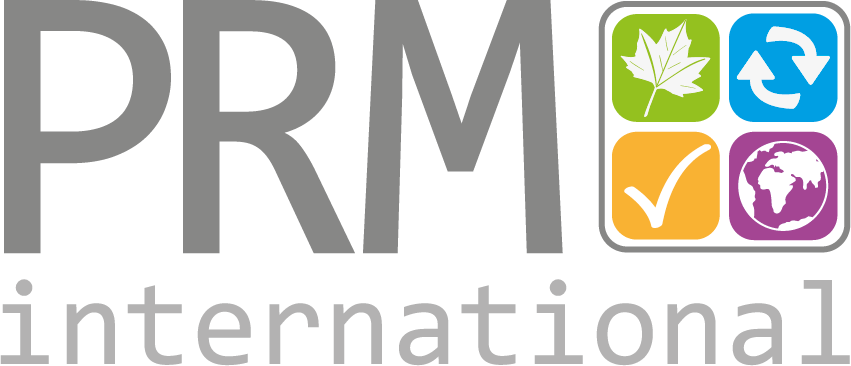
PRM-International
Plantbased Raw Materials International (PRM) is a cooperative focusing on increasing the value of alien plants and organic waste. We have a different view on organic waste. We see organic waste as a potential raw material for bio-based products, animal feed and food. We organise value chains to upcycle plant fibres and protein into sustainable products and goods. These new value chains create jobs, support community development, and reduce the environmental and social problems associated with alien plants and organic waste streams.
Who we are
Complementary strengths
PRM is a partnership that combines the complementary strengths of its founding partners to find financially sound solutions for some of society’s largest problems. We are blue economy adapts. We think that our traditional take-make-waste mentality will come to an end and will be replaced by a more circular view on the way how we produce, use and reuse.
Our mission
PRM International acts as a change agent towards a biobased and circular economy. We develop integrated value chains for biobased products and solutions in communities and regions.
Our vision
To transform large-scale ecological and societal problems associated with (invasive) water plants into biobased business opportunities.
What we do

Igniting a new way of thinking
We advise municipalities struggling with the uncontrolled growth of different plants. We take stock of the local situation, analyse plant characteristics and qualities and come up with possible business models.
Customizing our business model
For projects facing problems with overgrowth of plants we created a business model based on cooperation throughout the entire value chain: from problem owner to executive organization and from biomass processor to bio/based producer. This business model is applicable in different countries with similar issues. After we consulted the municipality and analysed plant characteristics we customize our business model to the local situation.
Implementation
All stakeholders are part of the process of implementing the business model. Implementation comprises three phases:
Benefits of our business model
Case: water hyacinths in eThekwini
The municipality of eThekwini is facing serious problems with the overgrowth of the water hyacinth. The plant causes large problems in the water quality of South Africa. PRM-International steps in to ignite a new way of thinking. Because in dried form, the plant can be used as raw material for packaging- and building materials and thus can play a role in sustainability on a commercial basis.
Read more...
Uncontrolled growth of alien plants
The story begins with a work visit of SPPS in the South African municipality of eThekwini. The municipality is facing an urgent problem with the overgrowth of water hyacinth.
The effects of the water hyacinth are:
- biodiversity destruction
- oxygen depletion and reduced water quality
- breeding grounds for pests and vectors
- blockage of waterways
Some water hyacinths grow up to 2 to 5 metres a day and double their population in two weeks. The invasiveness of the hyacinth is related to its ability to clone itself. Each plant can produce thousands of seeds each year and these seeds can remain viable for more than 28 years. An urgent issue that needs to be resolved.
Sustainable solution
eThekwini is looking for an affordable and structural solution. SPPS steps in to take the initiative for a commercial solution to the problem. Though SPPS has an extensive network of private and government contacts in this region, the company can’t solve the problem on its own. It’s being dependent on third parties.
SPPS consulted Gido, a company that is working on a similar sustainability project in Holland. Together they approached Millvision and Ripple-A for their expertise in the project. This resulted in a shared conviction: together we can transform a large-scale social and business problem to an ecological and economic opportunity.
From problem to opportunity
Together we are aiming to conduct market research for a start up company that develops biomass based products, run a production facility and create access to the market. We investigate product opportunities and sales market. We organize a value chain: harvesting the plant, testing the quality and compatibility of the raw material, developing a recipe and developing and selling an end product.
The water hyacinth can be used for:
- bioenergy
- treatment of waste water
- medicinal use
- furniture, handbags and rope
- potential as bioherbicidal agent
- potential for biobased products in packaging
Mid-term goal: run a production- and sales company in cooperation with a local partner and set up a Fiber Application Center for further development of biobased products.
Long-term goal: control the growth of the water hyacinth and upcycle the organic waste streams.
Did you know…
The social costs of alien plants in South Africa amount to 0.3% of gross national income.
Founding partners

Blog
In our blog we share stories about our latest projects and on developments in the world of biomass production.
Durban Isithumba road trip
Just into our second day in Durban we got up early and went on a journey up the UMngeni river, together with Bart Fokkens, Regional Manager of the Duzi UMngeni…
read moreOn our way
PRM kicks off its activities in South Africa on 18 September. Follow this blog for more information.
read moreNew website
PRM International is proud to announce the new website. Here we have the possibility to inform people in short about who we are and what we do. Besides, we will…
read moreTeam meeting
Today the PRM team meets in Raamsdonk at the Nature Fibre Application Centre. The morning programme is filled with plants, fibres and proteins. This afternoon we prepare for our first…
read moreContact us
Does your municipality or community face issues with alien plants and would you like to know what Plantbased Raw Materials can do for you? Please fill in the form and we’ll contact you as soon as possible.










